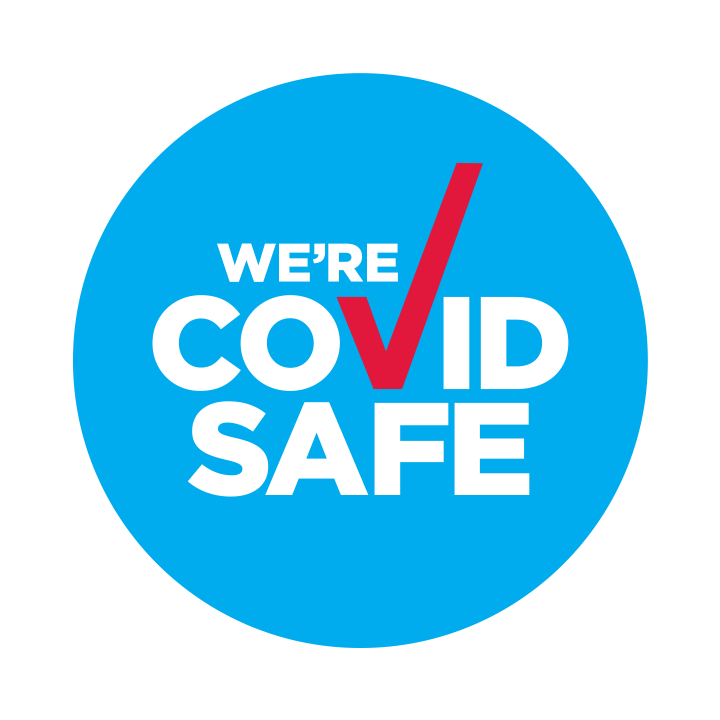Teeth Whitening
Philips Zoom and take-home Kits
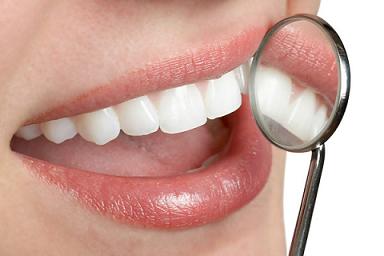
Fast results and cost-effective. Its time to brighten your smile. Freshen up with our half price in-chair now! $650 Only.
Visit The Zoom Whitening Page For More InfoGeneral Dentistry
Adults, Children and Seniors

Dental Check-ups and Clean with fluoride, X-rays Panoramic and Bitwings. We can help you keep your natural teeth for as long as possible.
Visit General Dentistry Page For More InfoSedation Dentistry
Sleep Dentistry
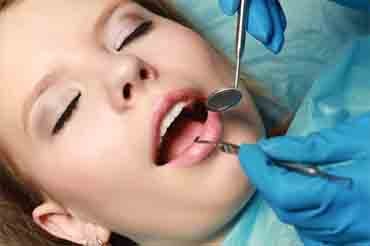
Pain-free dentisty is indicated for anyone who wants to be at ease and relaxed during any dental treatment.
Visit Sedation Dentistry Page For More InfoCosmetic Dentistry
Smile makeovers and Orthodontics
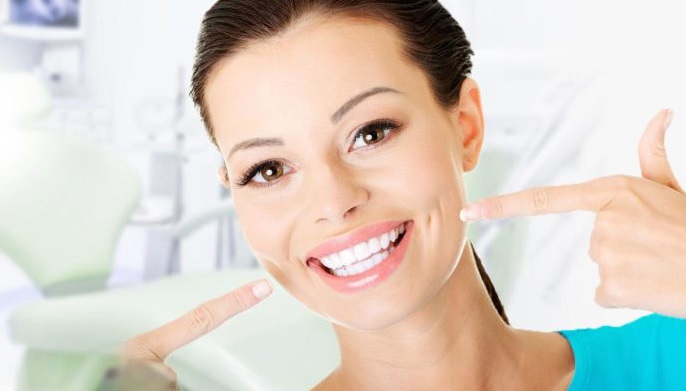
Have the smile of your dreams and improve confidence, self-esteem & social success.
Visit Cosmetic Dentistry Page For More InfoDental Implants
Single, full and All-ON-4 Implants
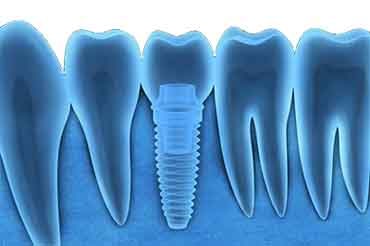
Recommended to missing teeth or dentures. Single, multiple or all. You can eat and drink that it feels like your natural teeth.
Visit The Dental Implants Page For More InfoLaser Dentistry
SIROLASE
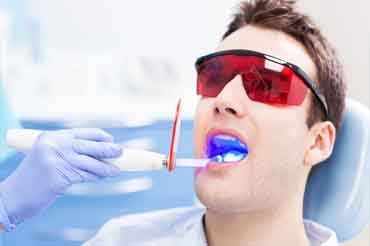
We use light instead of drills to treat several dental conditions. Effective to correct "gummy" smiles and periodontal diseases speeding up healing with reduced trauma.
Visit The Laser Dentistry Page For More InfoRestorations
fillings and same-day crowns
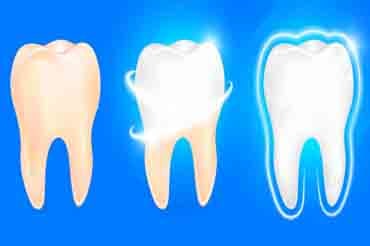
Fix chipped or knocked out tooth, improper bite correction and replace tooth decay metal fillings with resin or porcelain.
Visit The Restorations Page For More Info DENTAL HEALTH WEEK 2022:
What is here for you?
4 actionable tips that will make you love your teeth
and enhance your lifestyle!
This year's Dental Health Week has professional oral health recommendations to make you love your teeth. Scroll down this page to read the 4 actionable dental care practices to include in your day-to-day life that will enhance your lifestyle!
When is Dental Health Week in 2022?
Dental Health Week awareness campaign runs nationally from 1 to 7 August 2022 and the message about loving your teeth with professional tips continues throughout the year.
What is Dental Health Week?
Dental Health Week is the major Australian annual oral health awareness campaign created by the Australian Dental Association (ADA).
It takes place in the first week of August each year, counting on the support of its associated dental professionals to promote oral health education to local communities.
The objective is to bring awareness to adults, children and seniors about the importance of preventive oral health care for maintaining good overall health to improve well-being in every aspect of our lives.
The campaign is also extended to all Aboriginal and Torres Strait Islander peoples today by respecting the Tradicional Custodians of the Country throughout Australia and their connections to land, sea, and community.
The 2022 Australian Dental Association's Dental Heath Week national campaign "Love Your Teeth" aims to encourage people like you to keep up with the good practices to keep your teeth and gums healthy.
Loving your teeth goes beyond aesthetics, it means being proud of your healthy smile and you can achieve that by knowing how to take care of your teeth and gums properly to keep them healthy for life!
Dental Care Glebe Sydney Dentists want you to love your teeth and be proud of your smile by following these four professional recommendations below.
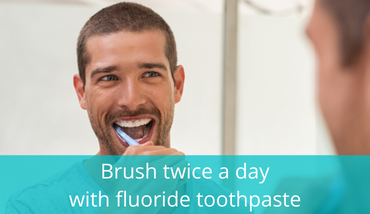
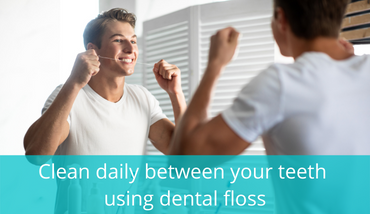

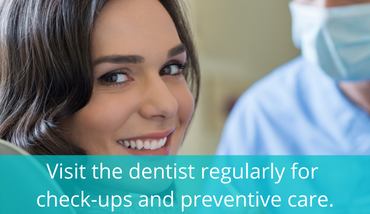
So, how to keep my teeth healthy and beautiful?
1. Brush your teeth twice a day
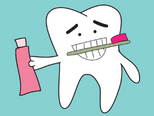 Did you know that our mouth is home to bacteria that can harm our teeth, gums, and heart? That's why it is important to brush our teeth daily to wash the bacteria out. Don't forget to brush your tongue, also!
Did you know that our mouth is home to bacteria that can harm our teeth, gums, and heart? That's why it is important to brush our teeth daily to wash the bacteria out. Don't forget to brush your tongue, also!
2. Clean between your teeth daily
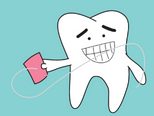 String floss, interdental brushes, and flossettes remove food residue that the toothbrush cannot.
However, not cleaning between our teeth increases the chances of tartar (plaque), a hard calcified deposit that forms and coats the teeth and gums, leading to severe gum disease and tooth loss.
String floss, interdental brushes, and flossettes remove food residue that the toothbrush cannot.
However, not cleaning between our teeth increases the chances of tartar (plaque), a hard calcified deposit that forms and coats the teeth and gums, leading to severe gum disease and tooth loss.
✔️ Avoid hard toothbrushes and do not press too hard.
✔️ Always allow your toothbrush to dry, as a damp toothbrush is an ideal environment for microbes.
❌ Don't use other people's toothbrushes. It's unhygienic and results in the transmission of oral infections.
Did you Know ⁉️
keeping our breath fresh and our mouth feeling clean, brushing and flossing can prevent gum disease, tooth decay and tooth loss?
3. Eat a healthy, balanced diet and limit added sugar intake.
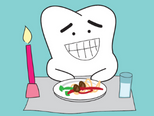 Certain foods, such as sugar, can increase the risk of gum disease and tooth decay, while others are abrasive and can cause tooth surface damage, such as citric foods. Read to the end to discover which foods are good for your teeth!
Certain foods, such as sugar, can increase the risk of gum disease and tooth decay, while others are abrasive and can cause tooth surface damage, such as citric foods. Read to the end to discover which foods are good for your teeth!
Avoiding tooth decay
🚫 Limit sugar consumption at mealtimes when more saliva is produced.
Avoiding tooth surface premature wear out
🚫 Avoid hot water and lemon or eating lemons as the acidity can erode the surface of the enamel.
✔️ Rinse with water after consuming acidic beverages.
🚫 Avoid using activated charcoal to whiten your teeth, as this is long-term abrasive on the tooth's surface.
🚫 Best not to open things using your teeth as this will result in accelerated wear, chips, and cracks.
Healthy food for your teeth
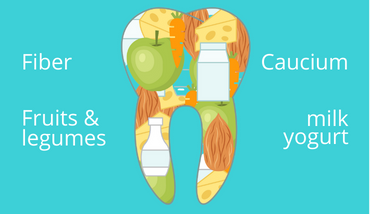 A healthy and well-balanced diet is good for the body and teeth.
Certain foods are good for the teeth. These include milk, cheese, and yoghurt because they contain calcium which helps strengthen the enamel (the thin outer layer of your teeth) against future damage from acid attacks by plaque bacteria in sugary drinks and coffee.
A healthy and well-balanced diet is good for the body and teeth.
Certain foods are good for the teeth. These include milk, cheese, and yoghurt because they contain calcium which helps strengthen the enamel (the thin outer layer of your teeth) against future damage from acid attacks by plaque bacteria in sugary drinks and coffee.
Foods high in fiber, such as fruits, vegetables and nuts, can also help keep teeth clean and healthy. Foods high in fibre help to scrub teeth preventing dental plaque that forms tartar underneath your gumline.
4. Take your teeth on a date to the dentist!
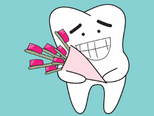
Visit the dentist regularly for check-ups and preventive dental care.
The best way to keep your teeth healthy is to visit the dentist regularly for check-ups and preventive dental care.
By getting into the habit of visiting the dentist every 6 to 12 months, you can avoid potential problems like cavities and gum disease. Plus, preventive care is always more affordable than treating a dental problem after it has already developed.
Did you know ⁉️
Dental cavities can start as soon as the first baby tooth appears and an oral health assessment should be no later than two years of age?
MORE TIPS
Here are some helpful links to the Australian Dental Association and Dietitians Australia websites, where you can find more information:
Brushing your teeth properly guide links:
Tooth brushing basics.
How to brush with a manual toothbrush.
How to brush with an electric toothbrush.
Electric or manual toothbrush?
Brushing children's teeth.
Toothpaste.
Cleaning between the teeth.
Flossing guide links:
When should you clean between your teeth?
Why does cleaning between my teeth cause my gums to bleed?
How to floss your teeth properly.
Flossettes.
At what age should children begin flossing?
Interdental brushes.
Avoiding toothpicks.
Eating healthy link:
Dietitians Australia website.
💕 💕 💕 💕 💕 💕 💕 💕 💕 💕
We hope you can join us and share with family and friends, the importance of having a good oral health, eat healthily and visit the dentist regurlarly for check-ups and preventive care.
Love your teeth!
.jpg)
Dr Maurie Coorey
BDS Syd Uni (hons) and Principal.
Contact Dental Care Glebe Sydney Dentists for more information today!
 String floss, interdental brushes, and flossettes remove food residue that the toothbrush cannot.
However, not cleaning between our teeth increases the chances of tartar (plaque), a hard calcified deposit that forms and coats the teeth and gums, leading to severe gum disease and tooth loss.
String floss, interdental brushes, and flossettes remove food residue that the toothbrush cannot.
However, not cleaning between our teeth increases the chances of tartar (plaque), a hard calcified deposit that forms and coats the teeth and gums, leading to severe gum disease and tooth loss.✔️ Avoid hard toothbrushes and do not press too hard.
✔️ Always allow your toothbrush to dry, as a damp toothbrush is an ideal environment for microbes.
❌ Don't use other people's toothbrushes. It's unhygienic and results in the transmission of oral infections.
keeping our breath fresh and our mouth feeling clean, brushing and flossing can prevent gum disease, tooth decay and tooth loss?
3. Eat a healthy, balanced diet and limit added sugar intake.
 Certain foods, such as sugar, can increase the risk of gum disease and tooth decay, while others are abrasive and can cause tooth surface damage, such as citric foods. Read to the end to discover which foods are good for your teeth!
Certain foods, such as sugar, can increase the risk of gum disease and tooth decay, while others are abrasive and can cause tooth surface damage, such as citric foods. Read to the end to discover which foods are good for your teeth!
Avoiding tooth decay
🚫 Limit sugar consumption at mealtimes when more saliva is produced.
Avoiding tooth surface premature wear out
🚫 Avoid hot water and lemon or eating lemons as the acidity can erode the surface of the enamel.
✔️ Rinse with water after consuming acidic beverages.
🚫 Avoid using activated charcoal to whiten your teeth, as this is long-term abrasive on the tooth's surface.
🚫 Best not to open things using your teeth as this will result in accelerated wear, chips, and cracks.
Healthy food for your teeth
 A healthy and well-balanced diet is good for the body and teeth.
Certain foods are good for the teeth. These include milk, cheese, and yoghurt because they contain calcium which helps strengthen the enamel (the thin outer layer of your teeth) against future damage from acid attacks by plaque bacteria in sugary drinks and coffee.
A healthy and well-balanced diet is good for the body and teeth.
Certain foods are good for the teeth. These include milk, cheese, and yoghurt because they contain calcium which helps strengthen the enamel (the thin outer layer of your teeth) against future damage from acid attacks by plaque bacteria in sugary drinks and coffee.
Foods high in fiber, such as fruits, vegetables and nuts, can also help keep teeth clean and healthy. Foods high in fibre help to scrub teeth preventing dental plaque that forms tartar underneath your gumline.
4. Take your teeth on a date to the dentist!

Visit the dentist regularly for check-ups and preventive dental care.
The best way to keep your teeth healthy is to visit the dentist regularly for check-ups and preventive dental care.
By getting into the habit of visiting the dentist every 6 to 12 months, you can avoid potential problems like cavities and gum disease. Plus, preventive care is always more affordable than treating a dental problem after it has already developed.
Did you know ⁉️
Dental cavities can start as soon as the first baby tooth appears and an oral health assessment should be no later than two years of age?
MORE TIPS
Here are some helpful links to the Australian Dental Association and Dietitians Australia websites, where you can find more information:
Brushing your teeth properly guide links:
Tooth brushing basics.
How to brush with a manual toothbrush.
How to brush with an electric toothbrush.
Electric or manual toothbrush?
Brushing children's teeth.
Toothpaste.
Cleaning between the teeth.
Flossing guide links:
When should you clean between your teeth?
Why does cleaning between my teeth cause my gums to bleed?
How to floss your teeth properly.
Flossettes.
At what age should children begin flossing?
Interdental brushes.
Avoiding toothpicks.
Eating healthy link:
Dietitians Australia website.
💕 💕 💕 💕 💕 💕 💕 💕 💕 💕
We hope you can join us and share with family and friends, the importance of having a good oral health, eat healthily and visit the dentist regurlarly for check-ups and preventive care.
Love your teeth!
.jpg)
Dr Maurie Coorey
BDS Syd Uni (hons) and Principal.
Contact Dental Care Glebe Sydney Dentists for more information today!
🚫 Avoid hot water and lemon or eating lemons as the acidity can erode the surface of the enamel.
✔️ Rinse with water after consuming acidic beverages.
🚫 Avoid using activated charcoal to whiten your teeth, as this is long-term abrasive on the tooth's surface.
🚫 Best not to open things using your teeth as this will result in accelerated wear, chips, and cracks.
 A healthy and well-balanced diet is good for the body and teeth.
Certain foods are good for the teeth. These include milk, cheese, and yoghurt because they contain calcium which helps strengthen the enamel (the thin outer layer of your teeth) against future damage from acid attacks by plaque bacteria in sugary drinks and coffee.
A healthy and well-balanced diet is good for the body and teeth.
Certain foods are good for the teeth. These include milk, cheese, and yoghurt because they contain calcium which helps strengthen the enamel (the thin outer layer of your teeth) against future damage from acid attacks by plaque bacteria in sugary drinks and coffee.Foods high in fiber, such as fruits, vegetables and nuts, can also help keep teeth clean and healthy. Foods high in fibre help to scrub teeth preventing dental plaque that forms tartar underneath your gumline.
4. Take your teeth on a date to the dentist!

Visit the dentist regularly for check-ups and preventive dental care.
The best way to keep your teeth healthy is to visit the dentist regularly for check-ups and preventive dental care.
By getting into the habit of visiting the dentist every 6 to 12 months, you can avoid potential problems like cavities and gum disease. Plus, preventive care is always more affordable than treating a dental problem after it has already developed.
Did you know ⁉️
Dental cavities can start as soon as the first baby tooth appears and an oral health assessment should be no later than two years of age?
MORE TIPS
Here are some helpful links to the Australian Dental Association and Dietitians Australia websites, where you can find more information:
Brushing your teeth properly guide links:
Tooth brushing basics.
How to brush with a manual toothbrush.
How to brush with an electric toothbrush.
Electric or manual toothbrush?
Brushing children's teeth.
Toothpaste.
Cleaning between the teeth.
Flossing guide links:
When should you clean between your teeth?
Why does cleaning between my teeth cause my gums to bleed?
How to floss your teeth properly.
Flossettes.
At what age should children begin flossing?
Interdental brushes.
Avoiding toothpicks.
Eating healthy link:
Dietitians Australia website.
💕 💕 💕 💕 💕 💕 💕 💕 💕 💕
We hope you can join us and share with family and friends, the importance of having a good oral health, eat healthily and visit the dentist regurlarly for check-ups and preventive care.
Love your teeth!
.jpg)
Dr Maurie Coorey
BDS Syd Uni (hons) and Principal.
Contact Dental Care Glebe Sydney Dentists for more information today!
Dental cavities can start as soon as the first baby tooth appears and an oral health assessment should be no later than two years of age?
Tooth brushing basics.
How to brush with a manual toothbrush.
How to brush with an electric toothbrush.
Electric or manual toothbrush?
Brushing children's teeth.
Toothpaste.
Cleaning between the teeth.
Flossing guide links:
When should you clean between your teeth?
Why does cleaning between my teeth cause my gums to bleed?
How to floss your teeth properly.
Flossettes.
At what age should children begin flossing?
Interdental brushes.
Avoiding toothpicks.
Eating healthy link:
Dietitians Australia website.
💕 💕 💕 💕 💕 💕 💕 💕 💕 💕
We hope you can join us and share with family and friends, the importance of having a good oral health, eat healthily and visit the dentist regurlarly for check-ups and preventive care.
Love your teeth!
.jpg)
Dr Maurie Coorey
BDS Syd Uni (hons) and Principal.
Contact Dental Care Glebe Sydney Dentists for more information today!
When should you clean between your teeth?
Why does cleaning between my teeth cause my gums to bleed?
How to floss your teeth properly.
Flossettes.
At what age should children begin flossing?
Interdental brushes.
Avoiding toothpicks.
Dietitians Australia website.
.jpg)
Dr Maurie Coorey
BDS Syd Uni (hons) and Principal.

